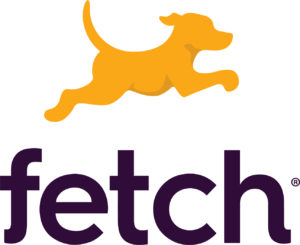Do’s & Don’t when marketing to kids — Lomit Patel // Tynker
- Part 1 Do’s & Don’t when marketing to kids — Lomit Patel // Tynker
- Part 2The rise of Lean AI — Lomit Patel // Tynker
Show Notes
-
02:10What Tynker doesTynker is the leading coding platform to teach kids and teens how to code. They are currently in over 100,000 schools with a user base surpassing 60 million kids.
-
03:00Marketing strategies for an industry with high consumer consideration of product impactTynker works with different school districts trying to implement STEM education to facilitate exposure to coding. For the full-experience home subscription product, Tynker markets directly to parents to educate them about the benefits of coding.
-
04:32Rules and regulations when marketing to minorsWhen marketing to minors, companies must be COPPA compliant and be careful about how they collect, store, and use the data of minors. In an effort to build trust with school districts and kids, Tynker does not sell data for monetization purposes.
-
05:56The dos and donts of childrens data collection and targetingTynker does not track minors who come to their website for retargeting nor collect cookies from users under 13. Additionally, most minor accounts are set up through a school or require parent permission to create, and thats how Tynker is able to communicate with them.
-
07:59Tynkers approach to advertising a product for childrenTynker primarily focuses on Google and Facebook to advertise to parents and teachers. They also use content marketing, SEO, and a freemium business model to build a large community of kids who become creators, sharing their projects and driving virality through UGC.
-
12:00Building awareness with children and parentsTo build awareness in schools, Tynker targets school districts by building relationships through a strong sales team and in-person meetings. They also focus on paid marketing efforts to target parents at different life stages of their parenting journey.
Quotes
-
"Tynker has been around for just over 10 years now. We are in over 100,000 schools with over 60 million kids that use us. So, we're definitely trusted by both schools and kids." -Lomit Patel, Chief Growth Officer, Tynker
-
"We can't track minors that come to our website for retargeting. We don't collect cookies on users that are under 13 that come to our site." -Lomit Patel, Chief Growth Officer, Tynker
-
"We have over 5000 different courses that are available at different levels." -Lomit Patel, Chief Growth Officer, Tynker
-
"One thing that we've tried to do at Tynker that makes the products really popular with kids is we try to gamify a lot of our experiences. So, we have a free offering on the product." -Lomit Patel, Chief Growth Officer, Tynker
-
"Marketing to any business, especially a business for kids, building a huge community is really the thing that gets the value." -Lomit Patel, Chief Growth Officer, Tynker
-
"We have over 60 million users that use Tynker. So, we have a huge community of kids who end up becoming creators." -Lomit Patel, Chief Growth Officer, Tynker
- Part 1 Do’s & Don’t when marketing to kids — Lomit Patel // Tynker
- Part 2The rise of Lean AI — Lomit Patel // Tynker
Up Next:
-
Part 1Do’s & Don’t when marketing to kids — Lomit Patel // Tynker
Lomit Patel, Chief Growth Officer at Tynker, looks into the use of technology and how it impacts our kids. When marketing to minors, several things have to be taken into consideration such as data collection, use, and storage. Unlike other companies, Tynker is determined to be COPPA compliant and doesn’t track or sell the data of minors for monetization purposes. Today, Lomit discusses the do’s and don’ts of marketing to children.
-
Part 2The rise of Lean AI — Lomit Patel // Tynker
Lomit Patel, Chief Growth Officer at Tynker, looks into the use of technology and how it impacts our kids. Lean AI is a methodology commonly used in startups to optimize their use of data and AI technologies to achieve business goals with limited resources. This approach helps startups to maximize their ROI and increase their chances of success in a competitive market. Today, Lomit discusses the rise of Lean AI.
Play Podcast











